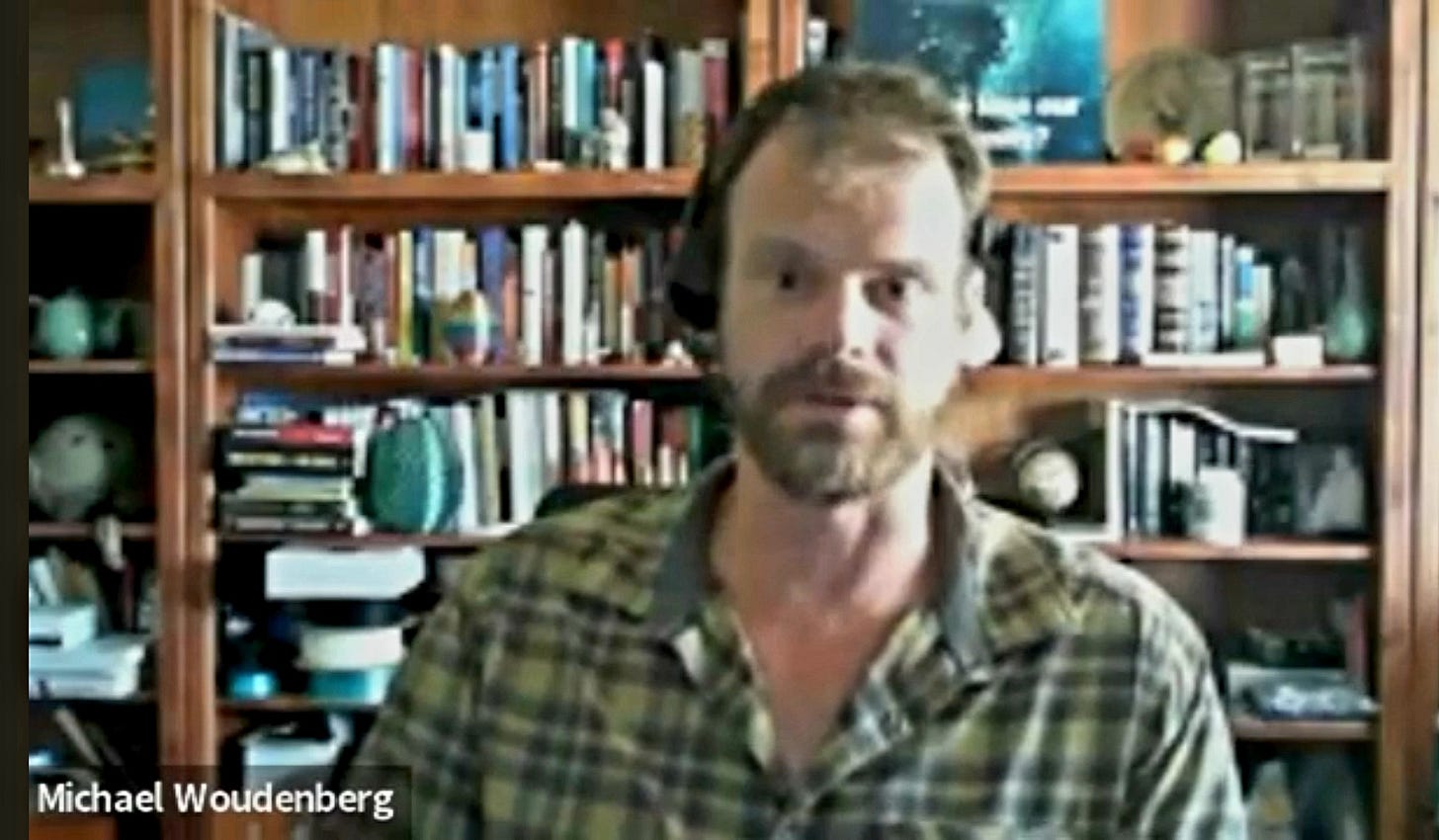The PSYOP of Lazy Thinking
A Response to Michael Woudenberg’s Attack on Closer to the Edge
Michael Woudenberg’s recent article, "PSYOP, Until Proven Otherwise," takes what could have been a useful guide to critical thinking and turns it into an excuse for lazy paranoia. While Woudenberg correctly highlights some manipulative tactics in media, his eagerness to throw Closer to the Edge into the “PSYOP” pile reveals a deeper flaw: he’s far more interested in distrusting information than actually understanding it.
The PSYOP Playbook, or Just Good Writing?
Woudenberg criticizes Closer to the Edge for what he claims is manipulative language, pointing specifically to our description of Senator Merkley questioning nominees during a confirmation hearing. He fixates on our use of sharp, colorful language, ignoring the substance behind it — as if describing a tense exchange with some flair automatically invalidates the facts presented.
“Two things to note right off the bat,” Woudenberg writes. “First, this is just the start of a longer post, and it leads with incredible priming language used to trigger biases.”
This is nonsense. Emotionally charged language isn’t manipulation — it’s writing. If colorful language were enough to qualify as a PSYOP, Woudenberg’s own piece would be a masterclass in manipulation. After all, his breathless metaphor about stampeding elephants is just as emotive. The difference? Closer to the Edge pairs sharp language with credible information. Woudenberg pairs his language with lazy assumptions.
Anonymous, or Just Sensible?
Woudenberg accuses Closer to the Edge of being anonymous and, therefore, untrustworthy. This argument is weak and ignorant of how investigative journalism works.
Journalistic anonymity has been vital for decades — from Deep Throat during Watergate to whistleblowers exposing corruption and state misconduct. Woudenberg knows this, yet conveniently ignores it. Anonymity isn’t a tactic — it’s a safety measure. And while Woudenberg insists we refuse to cite sources, that’s false. Closer to the Edge consistently references credible reporting, government records, and verified accounts. What we refuse to rely on are lazy fact-checking outlets that masquerade as truth-seekers while selectively ignoring inconvenient facts.
“PSYOP, Until Proven Otherwise”: A Recipe for Madness
Woudenberg’s “PSYOP, until proven otherwise” mantra is where his argument completely falls apart. While skepticism is healthy, assuming everything is manipulation unless you personally can disprove it isn’t critical thinking — it’s paranoia. Worse, it encourages people to reject information that makes them uncomfortable, not because it’s false, but because it’s inconvenient.
This mindset is self-defeating. It flips the burden of proof, demanding that anyone who challenges Woudenberg’s accusations must somehow prove a negative. That’s the intellectual equivalent of someone claiming their neighbor is a lizard person and insisting it's true unless you can prove otherwise. This isn’t skepticism — it’s a cheap way to sound insightful without doing any real investigative work.
The Real Danger of Woudenberg’s Thinking
The most amusing irony here is that Woudenberg’s own writing mirrors the manipulative tactics he claims to oppose. He exaggerates our language, ignores our sources, and primes his readers to distrust us without a shred of direct engagement. He’s so eager to uncover manipulation that he’s ended up practicing it himself — a guy so convinced he’s surrounded by traps that he’s tripping over his own feet.
An Invitation
If Woudenberg is genuinely interested in truth, our inbox is open. Ask us questions. Challenge our reporting. We’ll engage directly. But if his entire strategy is to fling accusations and retreat into smug cynicism, then he’s not revealing PSYOPS — he’s just playing pretend.
In the meantime, we’ll keep doing what we’ve always done: reporting with integrity, providing credible information, and — yes — writing with a little attitude.
Footnotes (for Michael)
Woudenberg, Michael. "Psyop, Until Proven Otherwise." Polymathic Being, March 16, 2025.
Bernstein, Carl, and Woodward, Bob. All the President's Men. Simon & Schuster, 1974.
https://www.amazon.com/All-Presidents-Men-Bob-Woodward/dp/1476770514Mullin, Benjamin. "The Real Reasons Some Journalists Choose Anonymity." Columbia Journalism Review, November 2017.
https://www.cjr.org/currents/about_those_anonymice.phpPopper, Karl. The Logic of Scientific Discovery. Routledge, 1959.
https://www.amazon.com/Logic-Scientific-Discovery-Routledge-Classics/dp/0415278449




I corroborate your statements!
I find you most trustworthy!
Keep up your strong, independent journalism!
Our democracy depends on it!
He’s jealous, that’s all. You capture the essence & absurdity of these crazy bent characters with colorful spot on writing & he’s, well, boring.